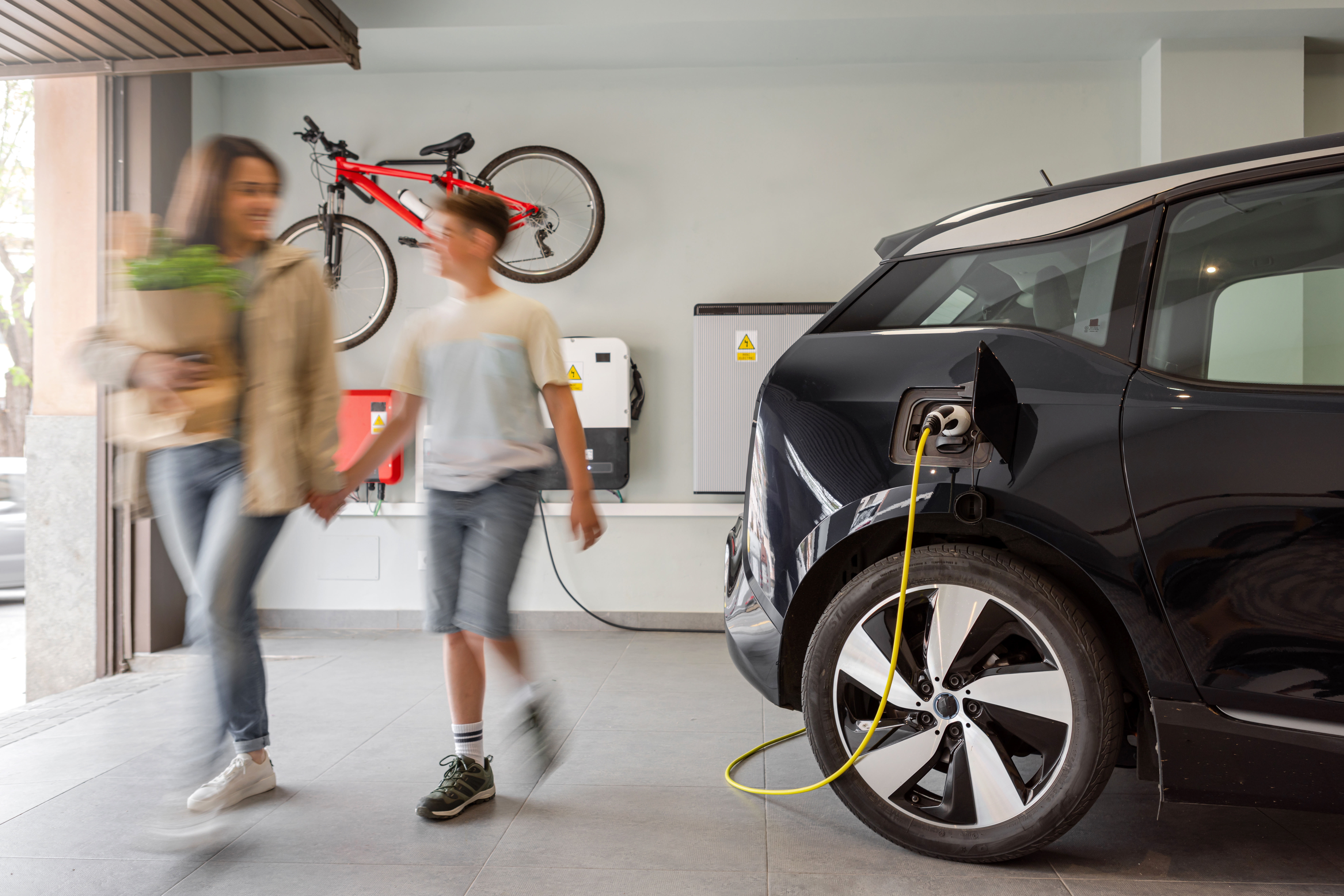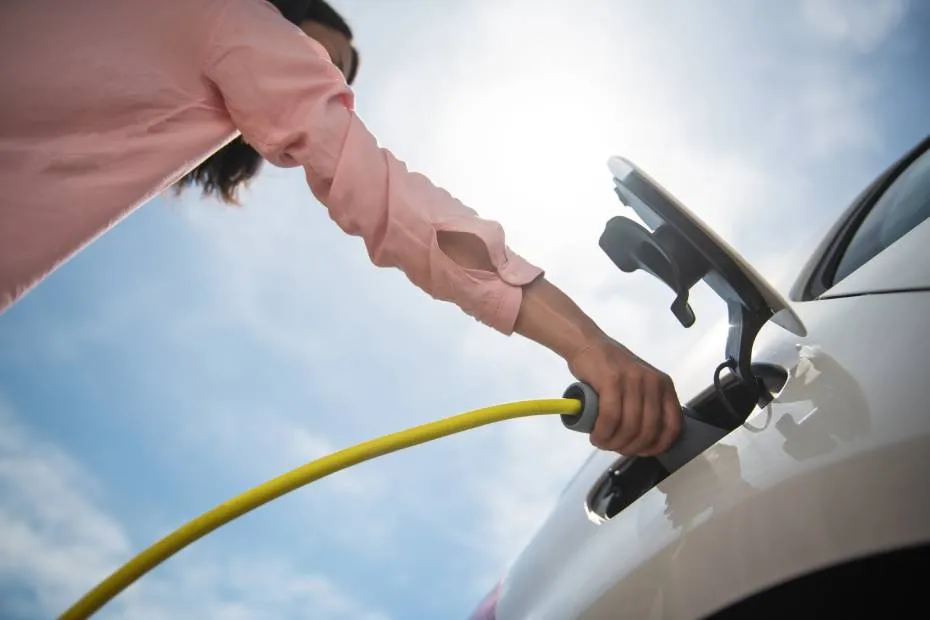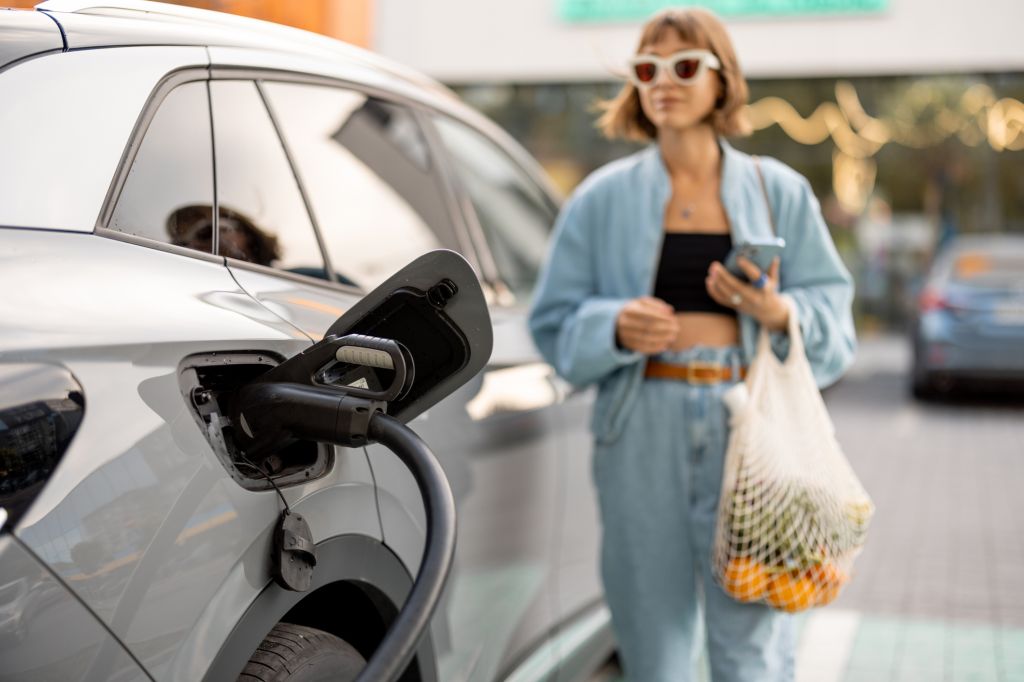Published July 23, 2024 • 5 Min Read
British Columbia is paving their way to having the highest electric vehicle (EV) adoption rate in North America. The province accounted for more than 23 per cent of Canada’s new EV registrations in 2023, with more than 20 per cent of new cars registered in B.C. classifying as electric.
The high number of registrations may be connected to the available federal and provincial EV rebates, which put up to $9,000 back in B.C. drivers’ pockets.
What are the available provincial electric vehicle rebates in B.C.?
Depending on individual income and vehicle type, B.C. has several incentives available to drivers across the province. The provincial rebates start at $500 and top out at $4,000, with drivers receiving the highest incentives if they make less than $80,000 annually.
Battery electric and long-range plug-in hybrids qualify for between $1,000 to $4,000, while short-range plug-in hybrids are eligible for between $500 and $2,000.
To apply for the provincial incentive, drivers must be B.C. residents, hold a valid B.C. driver’s license, and have an annual individual income that does not exceed $100,000.
Cars eligible for B.C.’s electric vehicle incentives
To qualify for B.C.’s EV rebates, large vehicles — like minivans and pickup trucks — must have a maximum manufacturer’s suggested retail price (MSRP) of $70,000. Smaller cars — like two-seaters, mid-sized vehicles and SUVs — must have a maximum MSRP of $50,000.
Battery EVs, plug-in hybrids, extended range EVs and hydrogen fuel-cell EVs all qualify for B.C.’s rebates. The province has also posted a list of the 111 vehicles eligible by make and model.
How can drivers get B.C.’s electric vehicle rebates?
Drivers looking to capitalize on B.C.’s incentives must apply online and get government pre-approval before purchasing their electric car.
If drivers qualify, they’ll get an email within three weeks outlining the rebate amount they’re eligible for. Drivers should then bring their license to the car dealership, and the rebate will be applied at the point of sale.
Drivers who scrap their older vehicles under SCRAP-IT — a program designed to take older, high-polluting vehicles off the road — are also eligible for certain incentives, like cash rebates, public transit passes and car share credits.
Are rebates available for at-home EV chargers in B.C.?
B.C. drivers who install an EV charger at their single-family home, duplex, or semi-detached house are eligible for a rebate of up to $350.
To qualify, drivers must buy and install an eligible charger and keep their receipts to include in their rebate application, which must be submitted within 90 days of installation.
Federal electric vehicle rebates available to drivers in B.C.
The Canadian government offers up to $5,000 to drivers who are either buying or leasing a new, light-duty EV through its Incentives for Zero-Emission Vehicles (iZEV) program.
The federal rebates are available on a first-come, first-serve basis until March 31, 2025, though the government says the program may end before then if funding runs out.
Which vehicles are eligible for Canada’s iZEV program?
There are 228 EVs that are eligible for the federal incentives, per the Government of Canada’s website. Drivers must be Canadian residents and are required to have purchased or leased their EV from within the country.
Battery electric, hydrogen fuel-cell, and long-range plug-in hybrids qualify for a rebate of up to $5,000, while shorter-range plug-in hybrids are eligible for up to $2,500. The rebates are applied toward purchases or leases of one year or more and are adjusted for leases under four years.
How do B.C. drivers use the federal iZEV rebate program?
B.C. drivers can get the federal incentive applied once they purchase or lease their new EV. However, drivers must complete both consent and incentive forms before the rebate can appear on their purchase of lease agreement. The dealership must calculate taxes and fees before the rebate is applied, and drivers shouldn’t be asked to make a deposit as a condition of receiving the incentive.
People can receive one rebate per year, while business and government fleets can get up to 10 per year, and car-sharing companies up to 50 per year.
Can B.C. drivers stack provincial and federal electric vehicle rebates?
Luckily for drivers, B.C. residents can stack both the provincial and federal incentives, allowing them to deduct up to $9,000 from their overall EV bill.
What does B.C.’s public charging network look like?
At the end of 2023, about 5,000 public charging stations were recorded in B.C.
B.C.’s 2024 budget earmarked $30 million to add an additional 500 public chargers, bringing this year’s total to 5,500.
To learn more about what it costs to own an EV in B.C., try the RBC Electric Car Cost Calculator.
This article is intended as general information only and is not to be relied upon as constituting legal, financial or other professional advice. A professional advisor should be consulted regarding your specific situation. Information presented is believed to be factual and up-to-date but we do not guarantee its accuracy and it should not be regarded as a complete analysis of the subjects discussed. All expressions of opinion reflect the judgment of the authors as of the date of publication and are subject to change. No endorsement of any third parties or their advice, opinions, information, products or services is expressly given or implied by Royal Bank of Canada or any of its affiliates.
Share This Article






